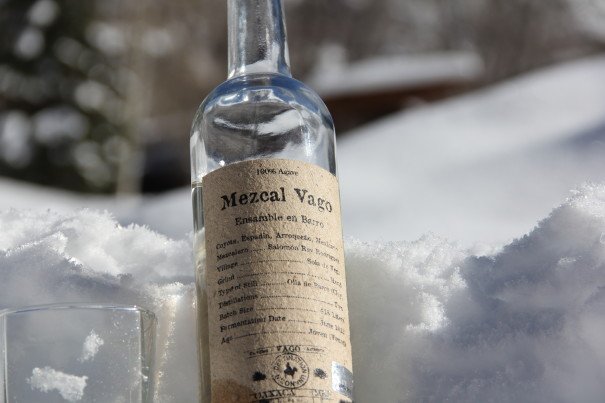
Surviving in a Ski Town With Help From the Hills of Oaxaca

Surviving in a Ski Town With Help From the Hills of Oaxaca
Mezcal in Telluride
In a decrepit old miners’ house delicately perched on an icy hillside, the sharply sloped floors made of bouncy, rotten floorboards can make even sober steps uncertain. Half a bottle of mezcal seems to straighten the crooked house, contrary to what the strong, alcoholic agave distillate would do in a home governed more strictly by right angles and sturdy floors.
I live in that tilting house, which sits in Telluride, Colorado. I get the juice from Mezcal Vago, a company straddling the hills of Oaxaca, Mexico, and my own ski town.
Dylan Sloan and Judah Kuper met in 1994. They were both camping up above Firecracker Hill, just outside Telluride, and looking for more permanent places to live. They struck up a friendship and began to travel together during off-seasons, that time here between the busy ski season and the busy summer tourism season, when ski bums take off for Thailand or Peru or, as fate would have it, Mexico.
As the story goes, Kuper was living for a time in a small beachside village in the state of Oaxaca when he got an ear infection. He visited the small medical clinic there, fell in love with his nurse, fought off her fiancé, and convinced her mezcalero father that he was worthy of his daughter’s hand.
When Kuper tried his father-in-law-to-be’s mezcal, it was love at first sip.
The family, now his in-laws, has been growing agave and making mezcal by hand for generations in the hills above the village of Candeleria Yegole. Aquilino, Kuper’s father-in-law, made the mezcal on the side to sell to neighbors or cousins. He also grew corn and beans and worked construction to make ends meet.
But his juice was so good that Kuper and Sloan thought there might be a market for it back in the United States. By 2013, they were selling the mezcal in the States, and it’s currently available as far away as Australia.
“These people have lived in the same 100 square miles forever, and they’ve learned every trick along the way,” says Sloan over coffee in Telluride, our first meeting having been canceled in deference to a powder day. “They’re mezcaleros. That’s what their family does.”
For producers who just a few years ago were giving their mezcal to friends and neighbors in old gasoline cans, Sloan says it’s a little strange for them knowing it’s being sold to consumers on the other side of the planet. I hope they know that a consumer some 2,000 miles to their north is using their juice—and its recollections of Oaxacan warmth—to fend off the harsh cold and deep snow of a new winter in Telluride.